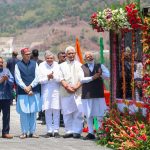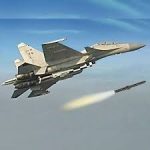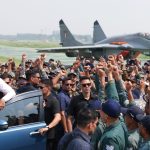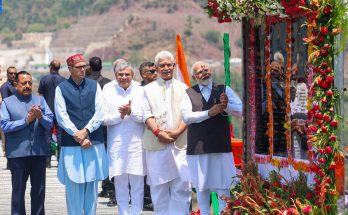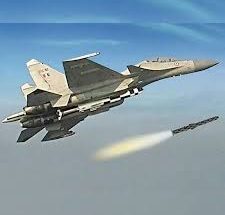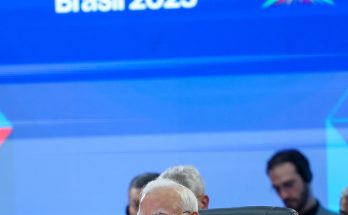Against the backdrop of the increasing salience of the Indo-Pacific region in global discourse and the resurgence of a host of security threats like piracy, experts, intellectuals and diplomats have gathered in India to map out new synergies and pathways of trans-national cooperation to transform this strategic and dynamic region.
The two-day conference (March 21-22) has been organised by the Indian Council for World Affairs (ICWA), India’s pre-eminent think tank which has taken the lead in shaping global discourse on emerging regions of the world. 
The conference is underpinned by a larger vision of a transforming Asia and seeks to analyse the geopolitics of the region in terms of larger developments like the shift of power from the west to the rest, the rise of China, the US ‘pivot’, re-balancing and strategic responses from India, China, ASEAN, Japan, Australia and others.
The conference, themed ‘Geopolitics of the Indo-Pacific Region: Asian Perspectives,’ seeks a holistic appraisal of trends and developments in the region that impinges on the destinies of over a three-quarter of humanity. Around 26 experts and intellectuals from 12 countries are participating in the conference.
“To us, it (the Indo-Pacific region) simply means that multi-faceted globalization has by now ensured, more than ever before, that security and development, defined in the widest sense, in the region stretching from the Suez to the Sea of Japan or from African shores of the Indian Ocean to the western Pacific, are strongly inter-related and mutually dependent,” said Rajiv Bhatia, Director-General of the ICWA.
Underlining the importance of the region, Bhatia said the stakes are very high as the developments in the region affect the destinies of approximately 77% of the world population residing in the defined area.
“This conference underlines the intrinsic significance of the region, at least from three different angles. Firstly, it highlights the maritime dimension in inter-state relations,” he said at Sapru House, home of the ICWA, in the Indian capital March 21.
“Secondly, it provides a platform to examine competing political priorities, converging and diverging economic interests, and changing security perspectives.”
“Thirdly, this conference helps us to move away from the previously nurtured and narrow cartographic imaginations of Indian and Pacific Oceans; this is an endeavour to bridge the two oceans and encourage the idea of ‘confluence of the seas.’
For India, an Indian Ocean power with a robust Look East policy, the stakes in peace, security and prosperity of the region, which is often touted as an arena for competing rivalries, are even higher.
“Our future is inter-linked and a stable, secure and prosperous Indo-Pacific region is crucial for our progress and prosperity,” Manmohan Singh had said famously. India, an emerging power and a responsible stakeholder in the Indo-Pacific region, has been consistently pitching for “an open, balanced, inclusive and transparent regionalism,” and is poised to play a pivotal role in spurring the process of integration of the Indian Ocean and the Asia Pacific region.
Author Profile
- India Writes Network (www.indiawrites.org) is an emerging think tank and a media-publishing company focused on international affairs & the India Story. Centre for Global India Insights is the research arm of India Writes Network. To subscribe to India and the World, write to editor@indiawrites.org. A venture of TGII Media Private Limited, a leading media, publishing and consultancy company, IWN has carved a niche for balanced and exhaustive reporting and analysis of international affairs. Eminent personalities, politicians, diplomats, authors, strategy gurus and news-makers have contributed to India Writes Network, as also “India and the World,” a magazine focused on global affairs.
Latest entries
 India and the WorldJuly 16, 2025Operation Sindoor and its Aftermath: India’s Successful Diplomatic Outreach
India and the WorldJuly 16, 2025Operation Sindoor and its Aftermath: India’s Successful Diplomatic Outreach India and the WorldJuly 11, 2025IAF and Operation Sindoor: A New Paradigm in Warfare
India and the WorldJuly 11, 2025IAF and Operation Sindoor: A New Paradigm in Warfare India and the WorldJuly 6, 2025Expanded BRICS will play key role in global governance reforms: Brazil’s Envoy
India and the WorldJuly 6, 2025Expanded BRICS will play key role in global governance reforms: Brazil’s Envoy India and the WorldJune 26, 2025Operation Sindoor: India Sheds Restraint, Rediscovers Utility of Force
India and the WorldJune 26, 2025Operation Sindoor: India Sheds Restraint, Rediscovers Utility of Force

